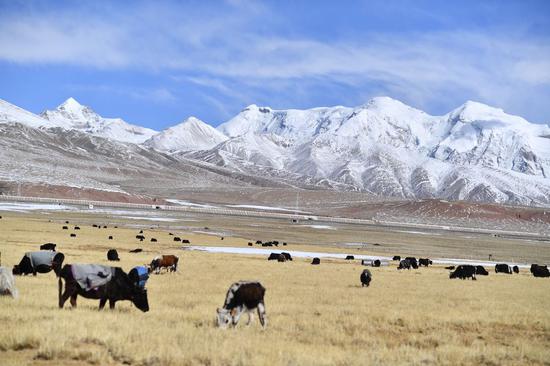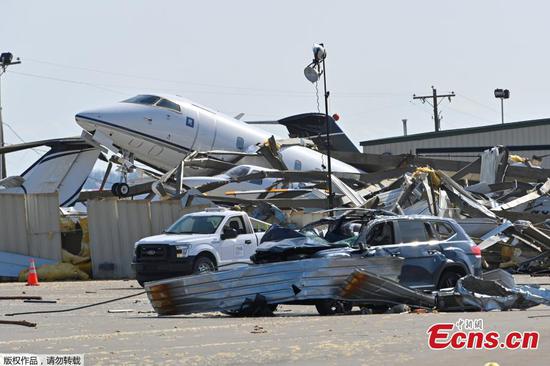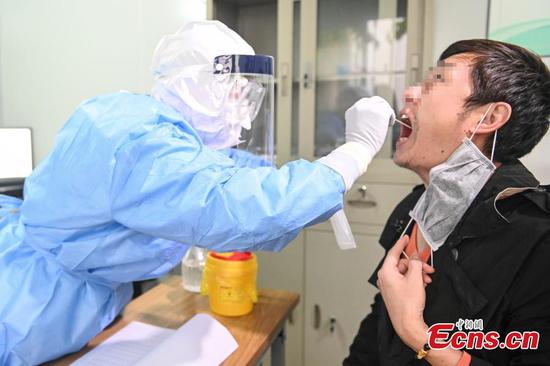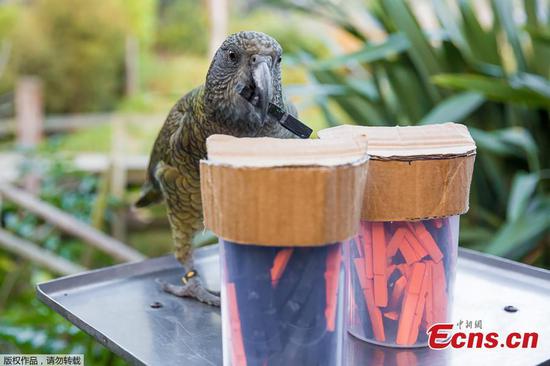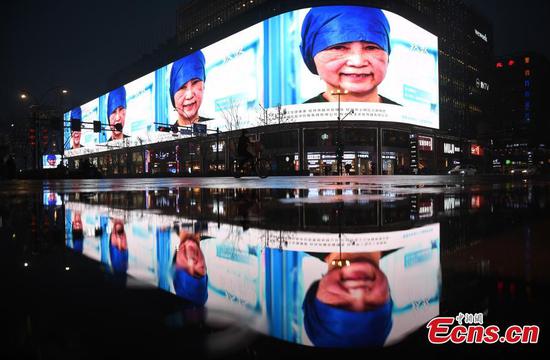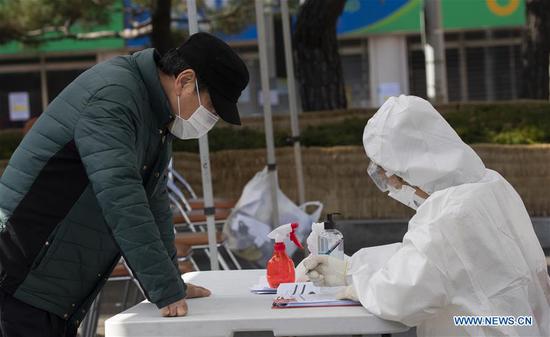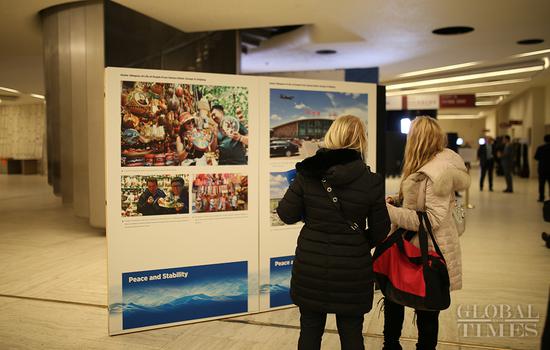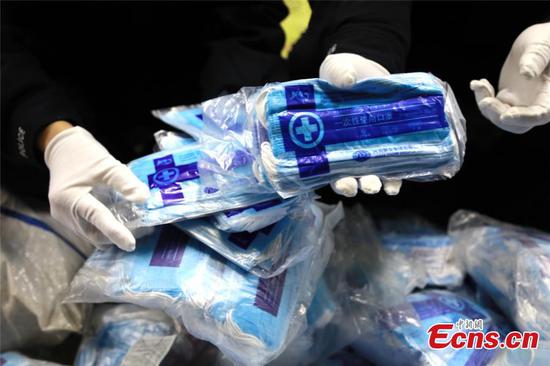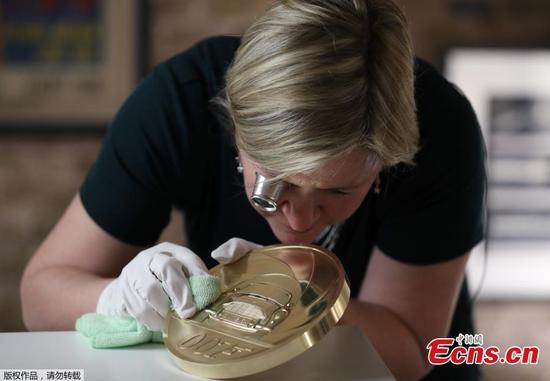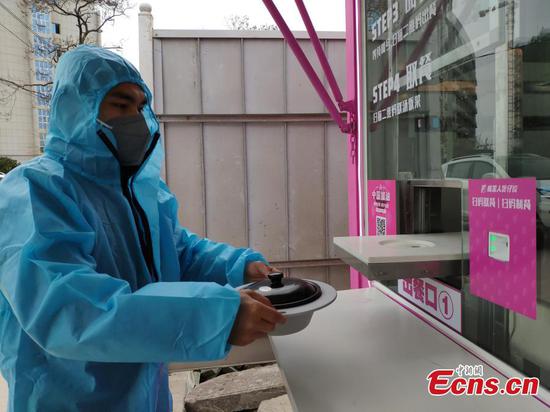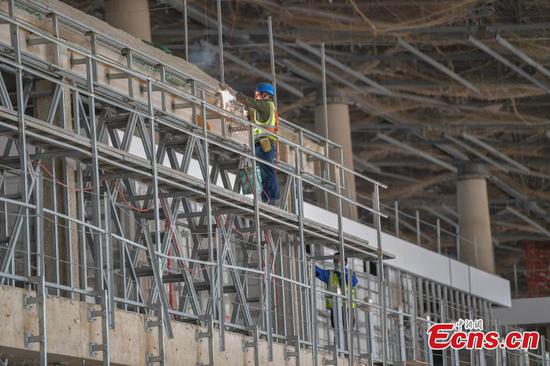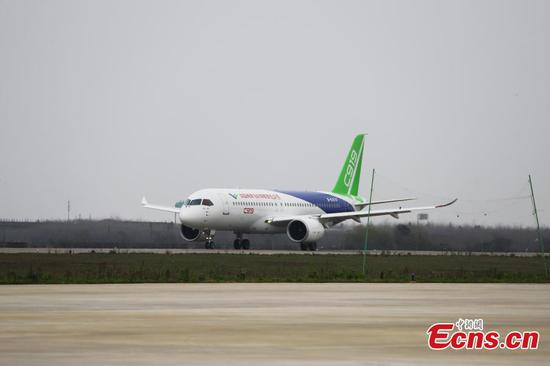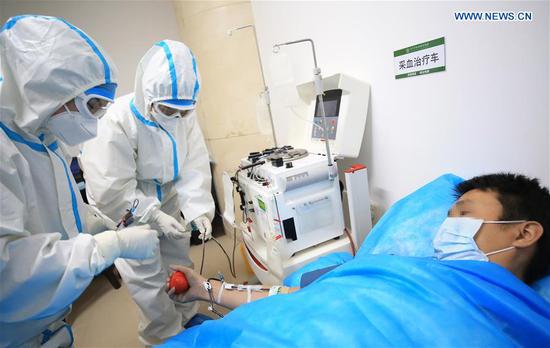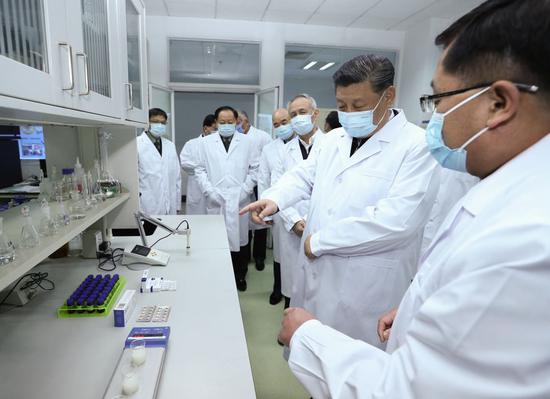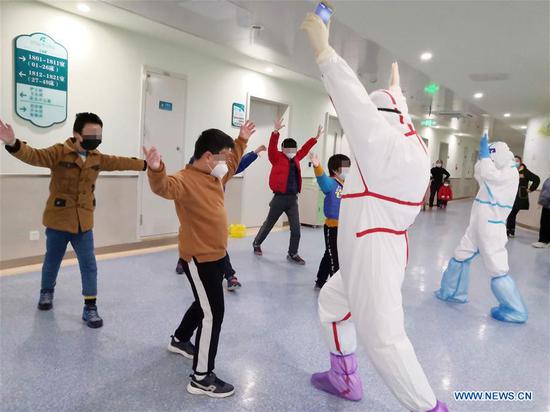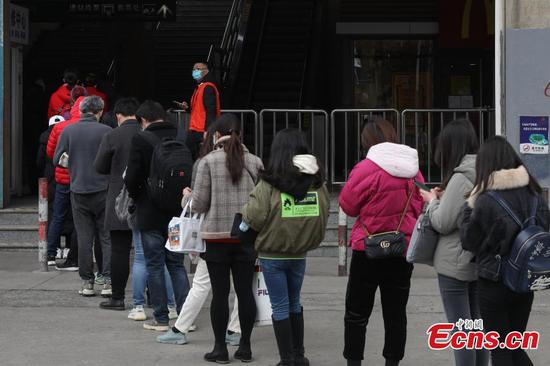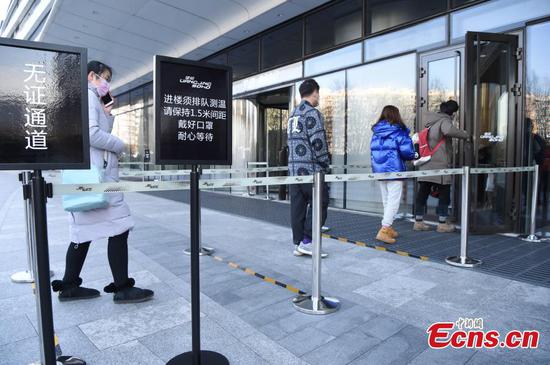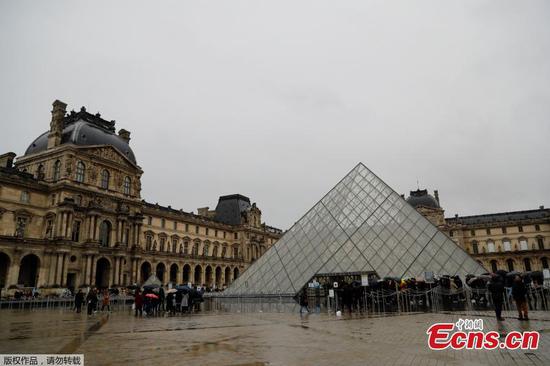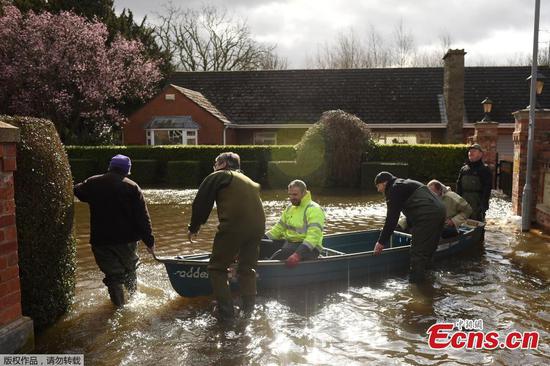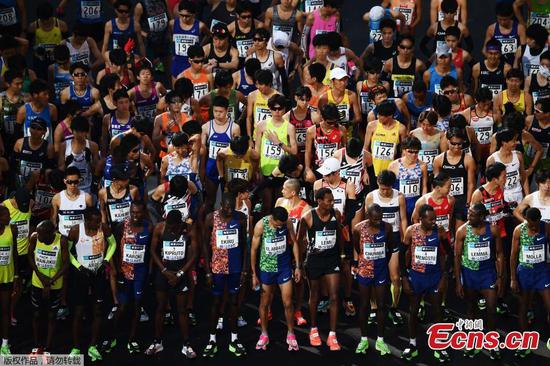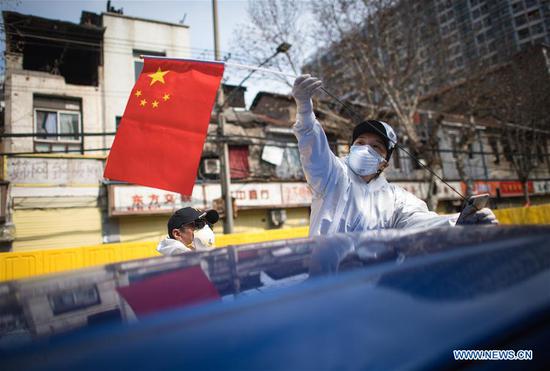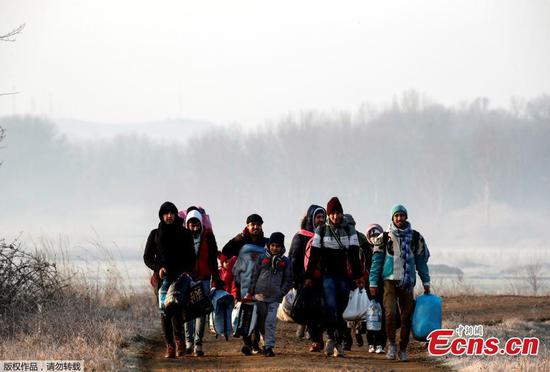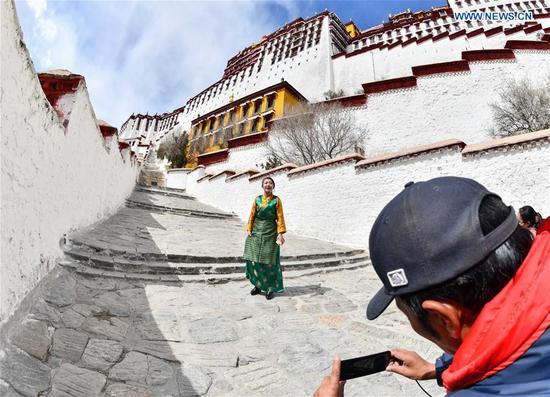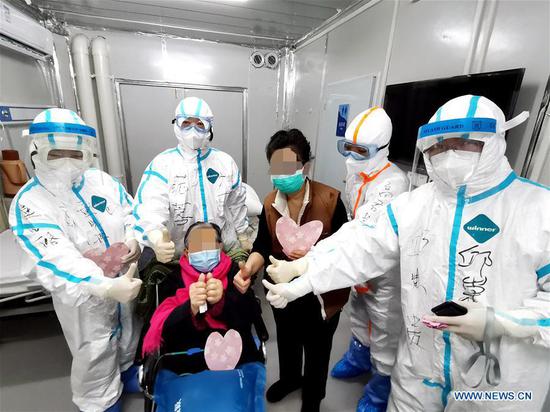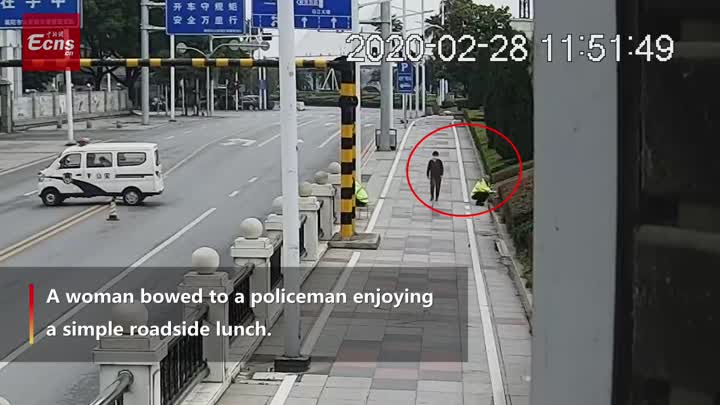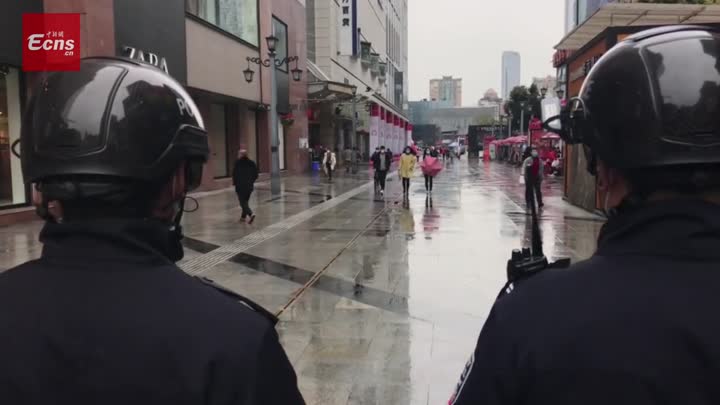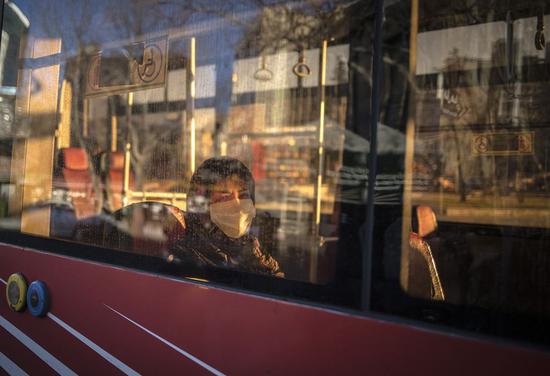
A woman wearing a face mask is seen on a bus amid the novel coronavirus outbreak in Tehran, Iran, on March 2, 2020. (Photo by Ahmad Halabisaz/Xinhua)
Iran on Wednesday received international aid to support its efforts to fight COVID-19, while more countries in the Middle East took further steps to stop the spread of the virus.
Iranian Foreign Ministry Spokesman Abbas Mousavi said that a large consignment of aid was shipped to Iran from the World Health Organization. Earlier Wednesday, the first humanitarian aid from the French government was handed over to Iran's Ministry of Health and Medical Education.
In addition, the United Nations Children's Fund, China, Turkey and Austria, as well as the European countries, have also provided medical supplies to Iran to help contain the coronavirus, Mousavi added.
Meanwhile, Iranian Ministry of Health and Medical Education said that the novel coronavirus has infected 2,922 people across the country, 92 of whom have died. A total of 552 people have recovered and left hospital.
Iran's First Vice President Eshaq Jahangiri said Wednesday that the Iranian government has suspended its officials' participation in international events and exhibitions, except for the Foreign Ministry, to "reduce possible disease transmission to the foreign countries."
Lebanon, which announced two new cases of COVID-19 on Wednesday, received 600 medical protective goggles and a batch of testing kits donated by Chinese companies and expatriates in the country.
"The Chinese here acted quickly after they knew about the first COVID-19 case in Lebanon," Xu Zhuming, representative of the donor companies and individuals, told Xinhua.
"We stand together with the Lebanese people in the fight against COVID-19," he added.
So far, Lebanon has confirmed a total of 15 coronavirus cases in the country. A sterilization campaign in several areas in the country started on Wednesday to prevent the spread of the virus.
Lebanon's General Directorate of Civil Aviation urged the Middle East Airlines to start sterilizing the terminal building and the general aviation building, as part of the preventive measures.
In addition, Governor of Beirut Ziad Chbib has decided to sterilize Beirut's streets to protect citizens from the virus while calling upon all municipalities to do the same. The Lebanese city of Baalbek has also sterilized various official departments.
In Egypt, the government temporarily banned all arrivals from Qatar over fears of the spread of the coronavirus, the cabinet said in a statement. On Sunday, Qatar banned all arrivals from Egypt, except for Qatari citizens.
Egypt's Health Ministry earlier on Monday announced a second case of COVID-19 infection, involving a foreigner who was tested positive for the coronavirus. But the first patient recovered on Thursday.
There are four more countries in the region reporting new confirmed COVID-19 cases or death from the virus on Wednesday.
In Iraq, the Health Ministry announced three more cases of COVID-19 infection, two in the eastern province of Diyala and one in Najaf province, bringing the total number of confirmed cases in the country to 35.
In Iraq's semi-autonomous region of Kurdistan, the health authority reported the first death from the novel coronavirus in Iraq, which involved a 70-year-old man. Iraqi Health Ministry later announced the second death of a woman infected with COVID-19 in the Iraqi capital Baghdad.
In Algeria, four new cases of COVID-19 were confirmed on Wednesday, bringing the total number of confirmed cases in the country to 12.
In Oman, the Ministry of Health announced on Wednesday three new cases of novel coronavirus infection, bringing to 15 the total number of confirmed cases in the country.
Meanwhile, Saudi Arabia confirmed the second case of novel coronavirus, involving a Saudi national who arrived with the first case from Iran through Bahrain.
The Saudi Interior Ministry also announced temporary suspension of Umrah for citizens and residents, as part of its preventive measures to stop the spread of the virus.










